|

Mayor William Peduto addresses a crowd gathered
at the dedication of Brookline Boulevard on July 24, 2014.
Beginning with the City's incorporation
in 1816, there have been fifty-eight individuals who have held the post of Mayor of
the city of Pittsburgh. There have been sixty-two seperate administration changes
(four individuals held the post during separate terms). Over the years, Pittsburghers
became endeared to many of these officials.
During the past eighty-five years, former Mayor
Cornelius Scully enjoyed wide popularity during the war years, and David L. Lawrence
was the revered leader who oversaw Pittsburgh's revitalization during the period
known as Renaissance I.
 
Mayor David Lawrence (left) with Brookline
All-Stars in 1958 and Mayor Joseph Barr batting at Moore Park in 1969.
Mayor Joseph Barr brought the city through
the turbulent 1960s with his calm demeanor. He was followed by Pete Flaherty. Among
Mayor Flaherty's many memorable moments was August 30, 1974, when he flipped the
switch on the new fountain at Point State Park, giving the City its signature
attraction.
Richard S. Caliguiri took over in 1977 and
became arguably the most popular Mayor in the City's history. Mayor Caliguiri
oversaw Pittsburgh's second renaissance. Stricken with a fatal illness that took
him in 1988, the late-Mayor's life is celebrated each September with the Richard
S. Caliguiri Great Race. There is also a beautiful statue of the late-Mayor at the
entrance to the City-County Building.

Mayor Richard S. Caliguiri visits
the Brookline Junefest in 1983.
Sophie Masloff held the position of Chief
Executive in the early 1990s, the first woman to hold the City's top post. During
Mayor Masloff's tenure, Pittsburgh had the notable distinction of being named
the "Most Livable City." Thomas S. Murphy followed in 1994 and held the post for
twelve years. His was the second longest term on record. Although plagued by
financial problems, the Murphy administration oversaw a third transformation of
the cityscape, with the building of two new stadiums and a major renovation of
the Convention Center.
In January 2006 Bob O'Connor took over
the office of Mayor after his third bid for election. His optimism, business-like
manner and "can do" approach brought a renewed sense of pride to a city yearning
for an end to political chaos. Diagnosed with a rare form of cancer seven months
later, Mayor O'Connor passed away in August 2006. The citizens of Pittsburgh were
left in stunned disbelief.
 
Mayor Bob O'Connor (left) waves the Terrible Towel
during the Super Bowl XL victory parade in February 2006,
and Mayor Luke Ravenstahl visits the Brookline Memorial Recreation Center
in March 2008.
As the city mourned Mayor Bob O'Connor,
City Council President Luke Ravenstahl was sworn in on September 1, 2006. At
age 26, Mayor Ravenstahl had the distinction of being the youngest Mayor of a
major metropolitan city in the history of the United States of America.
Mayor Ravenstahl's accomplishments include the 311 Response Line, the Redd-Up
Program and the Pittsburgh Promise Scholarship Program. During his term in office,
the city began the long road to fiscal solvency, addressing such issues as
long-term pension liabilities and balancing the budget.
Long-time District 8 councilman William
Peduto followed in 2014. During his eight-year term, the city saw many outward
changes, becoming a hub for innovative technology-based companies, and adapting
a more pedestrian and bike-friendly urban atmosphere. Many historic yet idle sites,
like the terminal building in the Strip District, were developed into commercial
meccas, with several new apartment buildings lining the nearby riverfront. Perhaps
most importantly, Mayor Peduto saw the city emerge from the restrictrive state
oversight of Act 47 and return to financial stability.

Mayor William Peduto, with Recreation Center staff
member Clint Burton, receiving his team
jersey for sponsoring a team in the 2014 Brookline summer basketball league.
On January 3, 2022, former State Representative
Ed Gainey was sworn in as the 61st Mayor of the City of Pittsburgh. Mayor Gainey holds
the distinction of being the first man of color elected as the city's Chief Executive.
His message is to bring the city together as one, working to address many of the
issues that divide varying sectors of the population and continue to oversee the
ever-evolving city of Pittsburgh, Pennsylvania.
The following is a list of the sixty-one mayoral
administrations in the history of Pittsburgh. Below the list is a brief history of
the fifty-seven individuals, compiled by Michael R. Murphy of the Allegheny County
Prothonotaries Office and edited to bring the history up-to-date.
"The Mayors of Pittsburgh"

Ebenezer Denny (1816-1817)
Ebenezer Denny was born in Carlisle,
Pennsylvania on March 11, 1761. The red-haired, blue-eyed youth served with
the First Pennsylvania Regiment during the American Revolution and also fought
at the Battle of Yorktown in 1781. Upon seeing and hearing the English surrender
party Denny commented, "I never heard a drum equal to it; the most delightful
music to us all!"
Denny was in the mercantile trade in
1797 when he was elected Commissioner of Allegheny County. The turn of the
century would find him serving as Treasurer of Allegheny County in 1803 and
1808.
The 1813 City Directory lists Denny as,
"Merchant, corner of Market and Third". His warehouses supplied the government's
efforts in the War of 1812 and on the Western frontier.
Denny was elected Pittsburgh's first Mayor
on July 19, 1816. Wharves and roads were improved during Mayor Denny's term. He
resigned on January 14, 1817, citing his health as an impediment. The Councils
of Pittsburgh drafted an official resolution which praised the yeoman efforts
and patriotic service Mayor Denny rendered to the people of Pittsburgh.
Denny died on July 21, 1822, and was
buried in the church yard of the First Presbyterian Church, where he had served
as a trustee. Many years later, his remains were removed to Allegheny Cemetery
where an impressive monument marks his grave.
Denny Street in Lawrenceville is named after
this first Pittsburgh mayor.

John Darraugh (1817-1825)
Pittsburgh's second Mayor was born in Ireland
in 1772. He was a merchant and lived on the northside of Fourth Street, between
Wood and Smithfield. Darraugh served as President of the Bank of Pittsburgh and
also held the position of Chief Burgess in the city from 1814 to 1816.
President Monroe visited the city on
September 5, 1817 and toured the Allegheny Arsenal. Also, Mayor Darraugh entertained
the Marquis de Lafayette on May 30, 1825. Mayor Darraugh's stewardship of City
Affairs included the construction of sidewalks and street drains. Serious measures
were taken during Mayor Darraugh's term to establish a city-wide water distribution
system.
John Darruagh died on Wednesday, May 13,
1828 of consumption. Oakland's Darraugh Street was named in honor of Mayor John
Darraugh.


John M. Snowden (1825-1828)
John Snowden was born in Philadelphia in
1776. His father died as a prisoner of the British and his mother was a confidant
of George Washington. He arrived in Pittsburgh in 1811 and soon began to print and
sell books. Snowden published his own newspaper called The Mercury.
Snowden served as Recorder of Deeds and
Treasurer of Allegheny County. He also was the director of the Bank of Pittsburgh
during his fruitful life of public service.
Snowden Township, which is now
South Park Township, was named after Mayor Snowden. America's song writer,
Stephen C. Foster, was born on July 4, 1826 during Mayor Snowden's administration.
Mayor Snowden died on April 3, 1845 in the City of Allegheny.


Magnus K. Murray (1828-1830 and 1831-1832)
Murray was born in Philadelphia in 1787. The
scholarly Murray earned both a bachelor and master's degree from the prestigious
University of Pennsylvania. Later, he studied law under Judge William Wilkins.
During Mayor Murray's first term, the Western
Terminus of the Pennsylvania Canal was brought to fruition. Squirrel Hill's
Murray Avenue was named after Pittsburgh's fourth mayor. Magnus K. Murray died on
March 4, 1938.


Matthew B. Lowrie (1830-1831)
Lowrie was born in Scotland in 1773. Prior
to his term in office, he had been a grocer. It is believed that Mayor Lowrie
promoted the steam fire engine. The city purchased an engine christened "The
Citizen."
During the administration of Mayor Lowrie,
the burgeoning city was divided into four wards, north, south, east and west.
Lowrie had volunteered as a Sunday school leader in the First Presbyterian Church.
He died on July 28, 1850 of Cholera Morbus. Mayor Lowrie's grave is in Allegheny
Cemetery and is marked with an ornate obelisk.

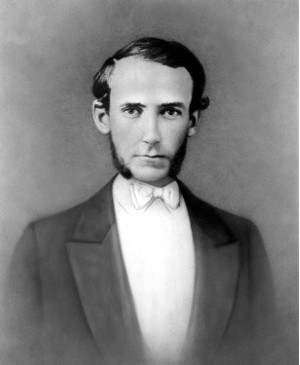
Samuel Pettigrew (1832-1836)
Samuel Pettigrew was the last man to be
appointed to serve as Mayor. He was the first Mayor to be elected by the people
of Pittsburgh.
Floods ravaged the city on February 10,
1832, cresting at 38.2 feet. The city's industrial muscle was becoming evident
in 1835 when "The Pittsburgh" became the first steam locomotive built on the
frontier. Much of Mayor Pettigrew's administration and life has eluded
historical research.


Jonas R. McClintock (1836-1839)
Jonas Roup McClintock was born on the 8th
of January, in 1808. Young McClintock graduated from the Western University, the
forerunner of the University of Pittsburgh. In 1830, he graduated from University
of Maryland Medical School. During the cholera epidemics, Doctor McClintock
exhibited great heroism saving lives. He organized the city's first "Board of
Health" in 1832. Dr. McClintock was a charter member of the Duquesne Grays and
Captain of the Viligant Fire Company.
He was known as the "boy mayor" because of
his youthful age of 28 upon assuming office. The city suffered from trying
financial times during his term in office. Grant's Hill was cut for the first
time in 1836.
In 1853, Doctor McClintock was elected to the
State Senate. He was most instrumental in promoting legislation establishing free
secondary education in the Commonwealth. During the Civil War he helped to organize
3500 men.
Dr. McClintock died on November 25, 1879 of
a strangulated hernia. He is buried in Allegheny Cemetery.


William Little (1839-1840)
Little was born in Pittsburgh in 1809 on
Liberty Avenue. He was a member of the Duquesne Grays. Mayor Little's relationship
with council was most confrontational. He found the life of a politician to be
very frustrating.
Mayor Little declined to seek reelection,
preferring to engage in commerce. Following his term as Mayor, Mr. Little concerned
himself in the Canal Freight business in Ohio and the furniture industry in
Iowa.
In the mid-1850s, William Little returned
to his native city and associated himself with the Monongahela Navigation Company.
Little was the treasurer of the Safe Deposit Company for many years. He died on
August 26, 1887 on Fayette Street, in Allegheny City. He is buried in Allegheny
Cemetery.


William W. Irwin (1840-1841)
Irwin was born in Pittsburgh in 1807. He
graduated from Allegheny College. Esquire Irwin was affectionately called "pony
Irwin" as he rode a pony ceaselessly when he was a boy. He served as District
Attorney of Allegheny County in 1838.
During Mayor Irwin's term the city
continued to expand, creating the need for four additional wards. Mayor Irwin's
term in his office served as a stepping stone to the United States Congress.
He died on September 15, 1856.

James Thomson (1841-1842)
Thomson was born in Franklin County in
1790 and arrived in Pittsburgh in 1812. From 1812 to 1825, he operated a jewelry
store, making and repairing watches on Market Street. In 1825, Thomson ventured into
the engine building business.
President-elect William Henry Harrison
jubilantly visited our city during Mayor Thomson's term. After one term, Mr.
Thomson renewed his energies in the engine fabrication industry. His firm also
built railroad freight cars.
From 1853 until 1871, Thomsom was the engineer
for the Pittsburgh Gas Works. He died August 10, 1876 at his home at 91 Penn
Avenue. He is buried in Allegheny Cemetery.

Alexander Hay (1842-1845)
Hay was born on April 8, 1806, in a section
called Scotch Hill. By age eleven, he labored in a glass house. Young Alexander
learned the trade of cabinetry.
The Catholic Diocese of Pittsburgh was
created during Mayor Hay's term. Also, navigation on the Monongahela River was
opened as far south as Brownsville during his administration.
Hay's life of public service continued
after his term as mayor. He commanded the Jackson Blues during the Mexican War.
During the Civil War, he was Captain of Company E, Pennsylvania Regiment. He
served gallantly at the Battle of Yorktown.
He and his son were the proprietors of a fine
furniture business. Mayor Hay died November 5, 1882 and is buried in the Allegheny
Cemetery.


William J. Howard (1845-1846)
William Jordan Howard was born on New Year's
Eve in 1799, in Wilmington, Delaware. Howard was a merchant whose business was
destroyed in the Great Fire of April 10, 1945. The conflagration decimated one third
of the city.
Mayor Howard's administration was dedicated
to helping Pittsburgh rise Phoenix-like from her ashes. The city did rebuild
very rapidly after having been vanquished by the lurid flames. Howard served for
many years as the President of The Board of Guardians of the Poor.
He died October 2, 1862 and is buried in
Allegheny Cemetery.

William Kerr (1846-1847)
William Kerr was born in St. Clair Township
on September 15, 1809. He graduated from the University of Pennsylvania Medical
School. Dr. Kerr opened an office on Liberty Avenue in 1833. He also was the owner
of an Apothecary.
Pittsburgh's promise glowed brightly during
Mayor Kerr's watch as The Pennsylvania Railroad was founded, as well as Mercy
Hospital.
After his term in office, Dr. Kerr moved to
Chartier's Township, which is presently the West End of Pittsburgh. There exists
today a Kerr Street in the city neighborhood of Elliott. Dr. Kerr died on August
11, 1853 and is buried in Allegheny Cemetery.

Gabriel Adams (1847-1849)
Adams was born in 1790. His administration
witnessed the founding of the Joseph Horne Company and the beginnings of Organized
Labor. Abolitionist sentiment was developing in Pittsburgh in the late-1840s.
Mayor Adam's would later serve as an appointed
Judge of the Court of Common Pleas. He died on June 4, 1864 in Lower St. Clair
Township.


John Herron (1849-1850)
John Herron was the son of Dr. Francis Herron,
the well-known Presbyterian Minister. The Herron's were among the founding families
of Pittsburgh. He captained the Duquesne Gray's in the Mexican War during the
Siege of Vera Cruz. His war feats greatly enhanced his electability. President
Zachary Taylor visited the city during Mayor Herron's term. Scant information
concerning the life of Mayor John Herron is available.

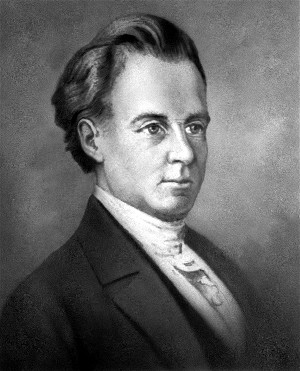
Joseph Barker (1850-1851)
The illiterate Joe Barker was elected as a
write-in candidate, while an inmate in the Allegheny County Jail. He was serving
a one-year sentence for delivering an anti-Catholic oration and disturbing the peace
in front of St. Paul's Cathedral at Fifth and Grant.
Mayor Barker's tirades continued into his
administration. For example, he arrested and fined Bishop O'Connor the sum of
$20.00 for illegally tapping a sewer. His one-year term was fraught with
controversy. He cracked down on vice and arbitrated an Iron Puddler's strike.
His relationship with Council was abysmal.
Mayor Barker sought re-election several
times, but was never again successful. He was decapitated by a train in Manchester
on the night of August 2, 1862. He is buried in Allegheny Cemetery.


John B. Guthrie (1851-1853)
John B. Guthrie was born in Kittanning, Pa. on
July 28, 1807. Guthrie was sent to the Mexican War with the Duquesne Grays. He was
appointed "Collector of Customs" for the bustling port of Pittsburgh. Mayor Guthrie
was the father of George W. Guthrie, who would also, one day, serve as the city's
Chief Executive. Suffragette Jane Grey Swisshelm received only three votes in
her ill-fated bid for mayor in 1851.
Guthrie died on August 17, 1885 in Cresson,
Pa. and is buried in Allegheny Cemetery.

Robert M. Riddle (1853-1854)
The future mayor was born in 1811, the son
of Judge James Riddle. Robert Riddle was involved in the banking business in
Philadelphia. He was possessed of an affable personality and tall build. His writing
skills were made evident as the editor of the Commercial Journal. Riddle was
Postmaster of Pittsburgh in 1841.
Mayor Riddle was most instrumental in helping
found the Republican Party. During Mayor Riddle's term, Pittsburgh's people
suffered through the city's worst cholera epidemic.
Inflammatory Rheumatism claimed his life
on December 18, 1858. He is buried in Allegheny Cemetery beneath a columned
marker.

Ferdinand E. Volz (1854-1856)
Volz was born in Pittsburgh, in 1823. His
father was Water Assessor. Young Volz followed in his father's footsteps, serving
as Water Assessor from 1847 to 1851.
After Mayor Volz's term, he returned to
his post as Water Assessor. In 1866, President Johnson appointed Volz as U.S.
Collector of Revenue for Western Pa. He was also elected as Treasurer of the
Allegheny Valley Railroad and served in that capacity until his death. Mr. Volz
was an ardent Mason. His last address was #91 44th Street.
He died May 14, 1876 and is buried in
Allegheny Cemetery.


William Bingham (1856-1857)
William Bingham was born in 1808 and for
most of his life was involved in the transportation business. The Bingham Brothers
Company was a prosperous firm in the freight delivery industry. The Republican
Party was formed in Pittsburgh during Mayor Bingham's administration.
Mayor Bingham died on September 15,
1873.


Henry A. Weaver (1857-1860)
Henry Weaver was born on April 1, 1820 in
Freeport. His father was Benjamin Weaver, Sheriff of Allegheny County in 1840.
Young Weaver had been manager of the Madison Coal Company. He was a staunch
Republican. The term of office was extended to two years while Weaver was in
City Hall.
President Lincoln appointed Weaver Collector
of Internal Revenue for Western Pennsylvania. Weaver is said to have had a souvenir
rail that Lincoln split. Later in life, Weaver was a real estate dealer. He finished
out his days at the St. James Hotel.
Weaver died on September 26, 1890 and is
buried in Allegheny Cemetery.


George Wilson (1860-1862)
Wilson was born on July 7, 1816, in Baltimore.
He worked in a tobacco plant and eventually went into business for himself. Wilson
served as a City Councilman and as the Director of the Public School System. In
addition, he was also an attorney.
Mayor Wilson happily introduced
President-elect Abraham Lincoln from the balcony of the Monongahela House on a
rain-soaked Valentine's Day in 1861. Mr. Wilson's last address was 835 South Negley
Avenue.
Wilson died on February 5, 1902 of pneumonia
and is buried in Homewood Cemetery.

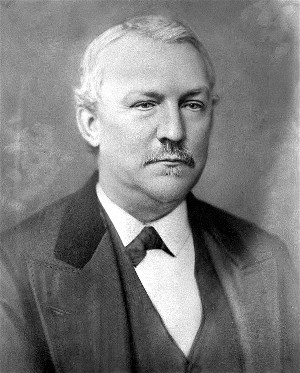
Benjamin C. Sawyer (1862-1864)
Sawyer was born on October 18, 1822. His
family was in the soap making business. During the administration of Mayor Sawyer,
the Civil War was raging. Pittsburgh supplied legions of soldiers and tons of
material for the war.
September 17, 1862, the Civil War's single
worst civilian accident occured. The Allegheny Arsenal exploded claiming the
lives of seventy-eight people. Most of the fatalities were young women.
Also, the Financial Crisis of 1873 vanquished
Sawyer's assets, forcing him to move to Colorado where later, he prospered in
the mining industry. He died on March 13, 1908 in California.

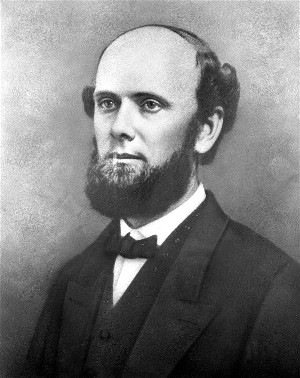
James Lowry, Jr. (1864-1866)
Lowry was born in Scotland in 1820. He owned
a foundry and was also a coal merchant. The city's industries were all booming during
Mayor Lowry's term. He would eventually be elected Coroner of Allegheny
County.
Lowry died on July 20, 1876 in St. Louis. He
is buried in Allegheny Cemetery.

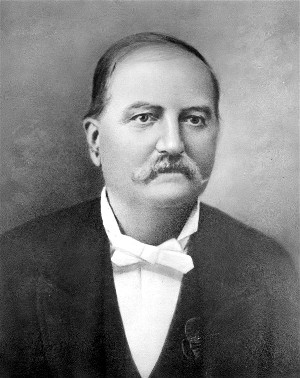
William C. McCarthy (1866-1868 and 1875-1878)
Mayor McCarthy was born in 1820. He was known
as "Roaring Bill". His reputation as a tenacious volunteer fireman was legendary.
McCarthy's trade was that of Pressman with the Pittsburgh
Dispatch.
The Industrial Revolution was gearing up and
Pittsburgh was annexing neighboring townships and boroughs. In 1868, Bloomfield
became part of the city. During his administration, the police department ceased
orally assuring the citizenry "that all is well." Inclined planes began to ascend
Mount Washington while Mayor McCarthy tended municipal affairs.
Crisis plagued the administration in July of
1877, during the deadly railroad riots. Striking railroad workers clashed in a
fierce battle with Philadelphia Militiamen at the 28th Street Roundhouse. Rail
traffic was brought to a standstill, and the terminal was burned. Mayor McCarthy
was elected City Controller in 1878.
He died January 27, 1900 and is buried in an
unmarked grave in Uniondale Cemetery on the northside.


James Blackmore (1868-1869 and 1872-1875)
Blackmore was born in 1821 in Washington
County, Pa. His father was County Treasurer in 1855, and young Blackmore served
as Chief Clerk. Mayor Blackmore was engaged in the lumber and coal business. The
city expanded east and George Westinghouse began manufacture of the air brake in
the Strip District during Mayor Blackmore's initial term.
A new City Hall was completed on Smithfield
Street and the city's southern boundaries were extended during Mayor Blackmore's
second term. James Blackmore's last address was 167 Wylie Avenue.
He died February 6, 1875; less than a week
after finishing his term. He is buried in Allegheny Cemetery.


Jared M. Brush (1869-1872)
Jared Brush was born on October 10, 1814
at the corner of Third Street and Cherry Way. He was skilled in the trade of
carpentry. Brush served as Superintendent of the Poor in Pitt Township. He was also
elected The Clerk of the Courts of Allegheny County in 1851. His elected service
included a term on City Council as well.
During the Civil War, Brush worked with the
Sanitary Commission. The Iron City was yielding to the age of Steel and Brush had
interests in the steel industry.
Mayor Brush's administration was praised
because of his extensive street construction projects and the establishment of the
first full-time Fire Department.
Brush served as the director of several
Pittsburgh banks. Brushton was named in honor of Mayor Brush. He died from
pneumonia on November 3, 1895 at 23 Brushton Avenue. He is buried in an unmarked
grave in Allegheny Cemetery.

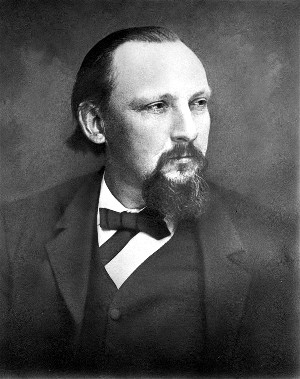
Robert Liddell (1878-1881)
Robert Liddell was born in 1837 in England.
He pursued the craft of beer making. During his administration, the Bureau of
Water placed the Brilliant Pumping Facility into service.
In 1878, Holy Ghost Fathers started a college
on the Bluff which would blossom into Duquesne University. City streets were
electrified in 1879 and Alesander Graham Bell's telephone went into limited use
in Pittsburgh.
The city expanded west and south, annexing
places called Mount Washington, Temperanceville and Birmingham. When Mayor Liddell
left office, he was employed as a liquor dealer.
Liddell lived at 2413 Smallman Street at the
time of his death, which occured on December 2, 1893. Mayor Liddell is buried
in Uniondale Cemetery.


Robert W. Lyon (1881-1884)
Robert W. Lyon was born on May 22, 1842 in
Butler County. During the Civil War, young Lyon served with the 102nd Pennsylvania
Volunteers. He followed the blacksmith trade. He was wounded once at the Battle of
Fair Oaks and then again, at Cold Harbor, Virginia.
After the war, Lyon went into the oil
business, in Oil City. He was known as "the working man's mayor." The American
Federation of Labor was organized here during Mayor Lyon's administration. The
Smithfield Street Bridge was completed while he was in City Hall. The Garfield
Section became part of the city in July, 1881, following the assassination of
President James Garfield.
Lyon worked in a steel mill after serving
his term as Mayor. Then, he finished his career working for Allegheny County. Robert
Lyon died on October 9, 1904 and is buried in Calvary Cemetery in McKees
Rocks.


Andrew Fulton (1884-1887)
The affable Andrew Fulton was born on December
21, 1850. He was tall, strong and well-built. Most Pittsburghers called him "Andy."
The Fulton family were in the foundry business. The Fulton Foundry cast the fire
bell, which hung at the old City Hall. Presently, the bell is housed at the
Pittsburgh Regional History Center.
Fulton was elected a City Councilman in 1879.
The Western Penitentiary was completed while Fulton was Mayor. After his term, he
went to Colorado to raise horses. Throughout the remainder of his life, he secured
either city of county political appointments.
Fulton died February 7, 1925, of
pneumonia, while working as a County Sealer of weights and measures. Andrew Fulton
is buried in Allegheny Cemetery.


William McCallin (1887-1890)
McCallin was born in Mercer County on August
8, 1942. His family operated a thriving livery enterprise. His political victories
included election as County Coroner and later, Sheriff in 1881.
Mayor McCallin's administration was known for
prolific construction of Public Works. Schenley Park was opened in 1889. The first
successful mold of aluminum was cast during Mayor McCallin's term.
He died of dropsy on September 4, 1904 and is
buried in Homewood Cemetery.


Henry I. Gourley (1890-1893)
Henry Irvin Gourley was born on October 3,
1838, in Juniata County. Due to family financial hardship, young Henry was sent
to work on a farm in Pine Township, Allegheny County. Gourley was admired for his
capacity for hard work. He became a renowned school teacher.
Elected public service beckoned him in 1876
when he was elected to Council. Mayor Gourley's administration was famous for
it's impeccable honesty.
He died on May 27, 1899 while serving as
City Controller. Mayor Gourley is buried in Homewood Cemetery beneath a most
impressive stone.


Bernard J. McKenna (1893-1896)
Bernard J. McKenna was born on February 16,
1842. McKenna fought in the Civil War on a gunboat. He worked as an iron molder in
a stove factory. Eventually he would serve as a Union official. He was an
aggressive Captain with the Allegheny Volunteer Fire Company. Later, he was a paid
city fireman.
In 1875, McKenna was elected Alderman. Mayor
McKenna was in City Hall when construction of the Highland Park Zoo was finished.
The Carnegie Library was completed in 1895. McKenna lived at 6325 Marchland Street.
He died on June 18, 1903 and is buried in St. Mary's Cemetery in
Lawrenceville.


Henry P. Ford (1896-1899)
Henry Parker Ford was born on October 15,
1837 in Hudson, New York. Ford distinguished himself as an accountant. He would
eventually associate himself with many of the important industries in Pittsburgh.
He founded the manufacturing concern of Emerson, Ford and Company. The company
made saw blades.
Ford's political career was launched in 1881,
when he was elected to City Council. Mayor Ford created the Department of Bridges.
The practice of water filtration was instituted under Mayor Ford. Pittsburgh's Police
Department implemented a Bicycle Patrol Division in 1896.
Henry Ford died on April 21, 1905, and is
buried in Homewood Cemetery.


William J. Diehl (1899-1901)
Diehl was born on January 22, 1845. He worked
as a bookkeeper in his early years. He served as a Deputy Sheriff for four years.
He was employed in the city's Treasurer's Office from 1873 to 1878. Diehl was
involved also in the Oil and Natural Gas industry.
Pittsburgh's progress into the twentieth
century was evident during Mayor Diehl's administration. Grant Boulevard, later
known as Bigleow Boulevard, opened to traffic. The Duquesne Club was founded, as well
as the United States Steel Corporation.
Mayor Diehl was a thirty-third degree Mason.
He died September 22, 1929 and is buried in Allegheny Cemetery.

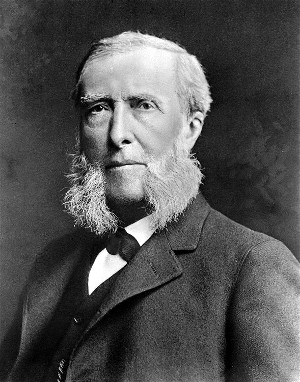
Adam M. Brown (1901)
Adam Mercer Brown was born in Butler County
in 1826. His ambition as a young man was to be a doctor. He participated in the
California Gold Rush. Brown earned the title "Major" as a commander of a small
military unit.
Esquire Brown served as the first President
of the Allegheny County Bar Association. He was also a Judge of the Court of
Common Pleas. In addition, he organized the Anchor Savings Bank in 1873.
Brown's title as Mayor was changed to that
of Recorder. Recorder Brown served for seven months. He lived at Liberty and
Pacific Avenue in Bloomfield. He died on August 17, 1901 and is buried in Allegheny
Cemetery.


Joseph O. Brown (1901-1903)
Joseph O. Brown was born in East Deer
Township on January 8, 1848. Esquire Brown was Prothonotary of Allegheny County
from 1880-1887. Brown served as Director of Public Safety from 1887 to
1901.
During Recorder Brown's term, the Frick
Building opened, vice was rampant, and the infamous "Biddle Brothers" escaped
from the County Jail.
Recorder Brown died in office on March
15, 1903 and is buried near Tarentum. The record of death states the following
cause - "Heart failure' super-induced by long, continued mental strain and
worry."


William B. Hayes (1903-1906)
Hays was born on October 19, 1844. His family
was in the Meat Packing business. Hays speculated in the coal mining industry in
Indiana County and the lumber business in North Carolina.
Recorder Hays' title reverted back to Mayor.
The Pittsburgh Pirates lost the first World Series in the fall of 1903. The Motion
Pictures industry was born here in 1905, with the world debut of the Nickelodeon.
The old City Hall was consumed by fire during Mayor Hays' term.
William B. Hays died on September 16,
1912.


George W. Guthrie (1906-1909)
George Wilkins Guthrie was born on September
5, 1848 in Pittsburgh. Attorney Guthrie was considered a reform candidate. Mayor
Guthrie believed that good legislation was needed to stem the tide of
corruption.
During Mayor Guthrie's administration,
Pittsburgh endured a debilitating flood on March 15, 1907. The City of Allegheny
was painfully and legally absorbed into the City of Pittsburgh in December of
1907.
Guthrie died on March 8, 1917 in Tokyo
while serving as United States Ambassador to Japan. He is buried in Allegheny
Cemetery. Guthrie Street in Regent Square was cut in 1910, following Mayor
Guthrie's term.


William A. Magee (1909-1914 and 1922-1926)
William Anderson Magee was born in the Hill
District on May 4, 1873. He was a member of the family for whom Magee Street and
Magee Hospital were named. Esquire Magee served as an Assistant District Attorney
and served on City Council. Mayor Magee was the first person to serve a four-year
term.
During Mayor Magee's first term, Forbes Field
opened and the Public Safety Department adopted the use of motorized conveyances.
Prohibition was the law of the land during Mayor Magee's second and final term. Magee
died on March 21, 1938.


Joseph G. Armstrong (1914-1918)
Joseph Gray Armstrong was born on February
2, 1867 in Old Allegheny. He was a glass blower and was very involved in the Labor
Movement. Armstrong served on City Council and was also elected County Coroner in
1904.
Mayor Armstrong earned the nickname "Joe the
Builder" because of the many public improvements that were undertaken during his
administration. The most ambitious project would be the The City-County Building.
The Armstrong Tunnels were named in honor of this Mayor.
Mayor Armstrong would later serve as County
Treasurer and Chairman of the County Commissioners.
Commissioner Armstrong died on November 19,
1931 and his body lay in state in the County Courthouse. He is buried in Southside
Cemetery.


Edward V. Babcock (1918-1922)
Edward Vose Babcock was born on January 31,
1864. He was in the lumber business. Babcock was on City Council in 1911. Mayor
Babcock implemented many public improvement projects, such as widening of existing
thoroughfares and the building of parks and playgrounds. He was the first Mayor
to appoint women to head city departments.
During Mayor Babcock's term, Pittsburgh
experienced: a deadly flu epidemic, a terrible steel strike, the beginning of
women's suffrage, as well as the birth of the age of radio.
Mayor Babcock was elected a Commissioner
of Allegheny County in 1927. During Commissioner Babcock's stewardship of county
business, the County Airport was constructed and major arteries were opened,
including Babcock Boulevard. Bridge construction was prolific with the completion
of the three sister bridges: Sixth, Seventh and Ninth Street Bridges.
Babcock earned the title "Father of the
County Parks" because he personally purchased land for North and South Park. He
gave 4000 acres of land to Allegheny County at cost.
Edward Babcock retired from public life
in 1931 and died on September 2, 1948. He is entombed in a mausoleum in Homewood
Cemetery.


Charles H. Kline (1926-1933)
Charles Howard Kline was born on Christmas
Day, in 1870, in Indiana County. Esquire Kline was first elected as a State
Representative and then, in 1906, he was elected to the State Senate.
Carrick was annexed and Frick Park opened
during Mayor Kline's administration. Despite the onslaught of the Great Depression,
Pittsburgh's skyline expanded with the completion of the Gulf Building, the Federal
Courthouse, the Grant Building and the Koppers Building.
Mayor Kline resigned from office amidst charges
of malfeasance. His purchase of an oriental rug has been a source of conversation
for many years.
Kline died in July 22, 1933, only four
months after vacating office. He is buried in Allegheny Cemetery.

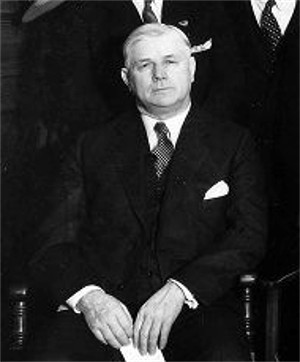
John S. Herron (1933-1934)
John S. Herron was born on November 7, 1872,
in Oswego, New York. Herron was President of the Bricklayers Union. Beginning in
1913, and for the next twenty years, he served on City Council. During Mayor Herron's
term in office, professional football began in Pittsburgh, and the Sunday Blue
Laws were voted out.
John Herron was a County Commissioner until
the time of his death on September 13, 1947. He is buried in Homewood
Cemetery.


William N. McNair (1934-1936)
McNair was born on October 5, 1880, in
Middletown, Pa. Attorney McNair ran for political office numerous times before
finally being elected Mayor in 1933.
Mayor McNair was a eccentric man. He set
up office in the marble lobby of the City-County Building and battled Council on
many issues. Calamity descended on the McNair administration on St. Patrick's
Day in 1936; at the time when the worst flood in Pittsburgh's history
occured.
He impetuously resigned in October of 1936.
McNair continued to seek elected public office and died in St. Louis, on September
9, 1948, while campaigning for the presidency. He is buried in Allegheny
Cemetery.

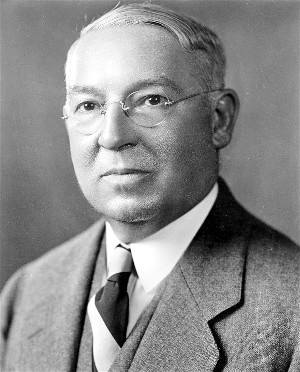
Cornelius D. Scully (1936-1946)
Cornelius Decatur Scully was born on November
30, 1878. He had served as City Solicitor and as a member of City Council. Mayor
Scully was at the helm of the city's finances during the waning days of World War II.
Pittsburgh's role as an industrial giant during the Second World War earned her the
ignominous title of "Smoky City."
Pittsburgh was the arsenal of Democracy but
the fires of Freedom had their attendant evils. Smoke control measures were
initiated by Mayor Scully and the City Health Department was upgraded. Scully dreamed
of the city being supplied with pure water from the mountains. Mayor Scully's
administration improved Bigelow Boulevard and implemented the use of parking
meters.
Public parks were developed, such as Mellon
Park, along Fifth Avenue in Shadyside, and Moore Park, on Pioneer Avenue in Brookline.
He believed the city should have more autonomy from State control, so he promoted
the Home Rule Charter.
Cornelius Scully died on September 22, 1952 in
Winchester, Virginia.


David L. Lawrence (1946-1959)
David Leo Lawrence was born on June 18, 1889
on Greentree Alley in the Old Point District, now Point State Park. Lawrence,
who once swam in the wake of passing boats along Pittsburgh's busy waterfront,
would eventually ride the flood tide of Democratic politics into the Governor's
Office. Lawrence was most instrumental in building the Democratic Party in Pittsburgh
and throughout the state.
During Mayor Lawrence's administration,
Pittsburgh's Renaissance took place. Smoke legislation was implemented, urban blight
was greatly reduced and many visionary public improvements were brought to reality.
His ability to work with other people to accomplish great things for Pittsburgh's
citizens was astounding.
The Lawrence years were fraught with
challenges. He mediated several labor disputes. David Lawrence had the longest tenure
of any Pittsburgh Mayor, totalling thirteen years. Mayor Lawrence was elected to
the Governorship of the Commonwealth in 1958, becoming the only Pittsburgh Mayor
to do so. He served the people of his native city well from the Governor's Mansion
in Harrisburg.
He served on President Kennedy's Commission
on Equal Opportunity and Housing in 1963. David L. Lawrence died on November 21, 1966
and is buried in Calvary Cemetery. The David L. Lawrence Convention Center stands
as a most fitting memorial to one of Pittsburgh's greatest statesman.


Thomas Gallagher (1959)
Thomas Gallagher was born in 1883. Gallagher
worked as a glassblower and held office in the Glassblowers Union.
He had served as a State Representative
and was elected to Council in 1933. After twenty years on Council, he became it's
President. Mayor Gallagher became Pittsburgh's oldest Chief Executive. He took
office at the age of seventy-five.
During his year in office, the Fort Pitt
Bridge opened to traffic, showcasing the dramatic panorama of Pittsburgh. He
welcomed Russian Premier Nikita Kruschev to Pittsburgh in 1959. That same year
the United Steelworkers went on a protracted strike. Mayor Gallagher returned
to City Council in 1965.
Thomas Gallagher died on March 14, 1967
and is buried in Calvary Cemetery. It is appropriate that an overlook on Mount
Washington is named after a man who served the city so faithfully.


Joseph M. Barr (1959-1970)
Joseph Barr was born in 1906 into a large
family. He had been a salesman before entering politics. He made political history
in 1940 when he became the youngest man to be elected a State Senator. His twenty
year career in the State Senate was legendary. He sponsored numerous progressive
bills, including the Pennsylvania Fair Employment Practices Act and he also
spearheaded passage of the "Pittsburgh Package." The Pittsburgh Package Bills were
the legislation that facilitated Pittsburgh's Great Renaissance.
Mayor Barr's calm demeanor during the
turbulent times of this administration is a testament to his sterling character.
Mayor Barr's leadership helped create additional office space in the downtown
area, promoting Pittsburgh as a corporate mecca.
In addition, the city's Water Plant was
significantly improved and the streets were better lit during Mayor Barr's term in
City Hall. One of the crown jewels of Barr's administration remains was the Civic
Arena.
Joseph Barr died on August 26, 1982 and is
buried in St. Mary's Cemetery.


Pete Flaherty (1970-1977)
Pete Flaherty was born in 1924 on the
Northside. He is a veteran of World War II, having been a Navigator in the Army
Air Corps; he attained the rank of Captain.
Flaherty is a graduate of the University
of Notre Dame Law School. From 1957 to 1965, he was an Assistant District Attorney
for Allegheny County. Mr. Flaherty was elected to City Council in 1965 and then to
the office of Mayor in 1969.
Mayor Flaherty's administration was
committed to prudent spending and preparing austere budgets. Three Rivers Stadium
opened, the Pirates won the World Series in 1971, and the Steelers won two
Super Bowls (1974-1975) while Flaherty was in office.
Mayor Flaherty went to work as a U.S.
Deputy Attorney General in the Carter administration in 1977. Flaherty returned
to Pittsburgh and was elected as an Allegheny County Commissioner in 1983. He
served in that position until 1995.


Richard S. Caliguiri (1977-1988)
Caliguiri was born on October 20, 1931 and
started his life of public service with the Department of Parks and Recreation.
He supervised the department in the 1960s. He was later elected to serve on City
Council. On April 11, 1977, Council President Caliguiri became Mayor Caliguiri
when Pete Flaherty left for Washington DC.
Mayor Caliguiri's administration is now
synonymous with Renaissance II. Pittsburgh's skyline expanded greatly while old
amenities were improved. The Highland Park Zoo underwent a metamorphisis during
his administration. Pittsburgh was declared, "America's Most Livable City" during
Caliguiri's watch over City Hall.
Mayor Richard S. Caliguiri died in office
in 1988 and is buried in Calvary Cemetery. A statue of his likeness graces the
steps of the City-County Building.

Mayor Richard S. Caligiuri and Race Director
Mike Radley (right)
of Citiparks at the Great Race start line.
During Mayor Caligiuri's term in office,
Pittsburgh began a tradition that has endured for decades. In 1977, Pittsburgh
hosted the inaugural Great Race, a 10K run from Frick Park to Point State Park.
The race has grown steadily in popularity and now ranks as the largest 10K race in
the State of Pennsylvania and tenth largest in the Country. Since the Mayor's
passing in 1988, the race has been known as the Richard S. Caligiuri Great Race.

Sophie Masloff (1988-1994)
Sophie Masloff was born in the Hill District
and was active in politics from an early age. She was on the staff of Commissioner
John J. Kane and she had a thirty-year career in the Allegheny County Court
System.
Sophie Masloff was elected to City Council
in 1976. She later served as President of Council. Masloff began serving as Mayor
on May 6, 1988, following the death of Mayor Caliguiri. On November 7, 1989,
Sophie Masloff became the first female to be elected Mayor in Pittsburgh's
history.
The Masloff administration refurbished
Market Square and implemented the Remote Water Meter Program. Mayor Masloff did
not seek re-election in 1993. The colorful former mayor passed away at the age
of ninety-six on August 17, 2014.

Thomas S. Murphy (1994-2006)
Tom Murphy was born on August 15, 1944.
His father worked in a Pittsburgh Steel Mill for fifty years. Murphy is a graduate
of St. Gwendelin High School and earned a degree from John Carroll University.
He holds a Masters Degree from Hunter College, and spent time in the Peace
Corps, serving in Paraguay. Mr. Murphy was a sales representative for
Alcoa.
In addition, he has served as the Director
of the Perry Hilltop Citizens Council and the Northside Civic Development Council.
Mr. Murphy served as a State Representative from 1979 through 1993. Representative
Murphy was elected Mayor in November of 1993.
During the Murphy administration, Three
Rivers Stadium was razed to make room for the new Heinz Field and PNC Park. The
Convention Center was also enlarged. Despite the many improvements in the city
landscape, Mayor Murphy had a tenuous relationship with the State Legislature
and the City Council. When the City hit on troubled financial times in 2003,
the Murphy administration was beset with numerous difficulties which eroded the
Mayor's popularity with the city electorate. Mayor Murphy did not seek re-election
in 2005.

Bob O'Connor (2006-2006)
Bob O'Connor was born on December 1, 1944.
Refered to as a true son of Pittsburgh, Mr. O'Connor succeeded in both the public
and private sectors, unique among Pittsburgh Mayors.
Prior to entering public service, O'Connor
prospered in private industry as Vice President of Operations for Pappan Enterprises,
a franchise of Marriott Corporation. He managed 36 restaurants in Allegheny County
and more than 1000 employees over a successful 20 year career of putting the customer
first by finding the right people to provide the right service.
Mr. O'Connor entered public service in 1991
when he was elected to City Council. He served as Council President from 1998-2001,
and continued representing his district until 2003, when he left council to run
Governor Ed Rendel's southwestern Pennsylvania office.
After losing primary bids to Mayor Murphy
in 1997 and 2001, Mr. O'Connor rose to the challenge once again in 2005 and this
time was elected as 58th Mayor of the City of Pittsburgh.
His platform highlighted fiscal responsibility
along with increased neighborhood and downtown development, more robust job growth,
and improved service delivery. During his first 100 days his "can do" attitude and
boundless optimism caught on, and the city seemed blessed with a Mayor who had the
right stuff to put the city back on track, both financially and
emotionally.
In July, only seven months after taking office,
the Mayor was diagnosed with primary central nervous system T-cell lymphoma, a very
rare variant of an unusual cancer of the brain and spinal cord. In less than two
months, on September 1, 2006, Mayor Bob O'Connor passed away. The city of Pittsburgh
lost a true son, and a good friend.

Luke Ravenstahl (2006-2014)
On September 1, 2006, City Council President
Luke Ravenstahl, age 26, became the youngest Mayor in the history of the City of
Pittsburgh. Mayor Ravenstahl was sworn in shortly after the death of former Mayor
Bob O'Connor.
Mayor Ravenstahl graduated from Pittsburgh's
North Catholic High School in 1998, then earned a Bachelor of Arts in Business
Administration from Washington & Jefferson College. After graduation, he worked
as an Account Manager for a courier service. A year later, at age 23, he won the
Democratic City Council nomination in District 1. He entered City Council in 2004
and ascended to the City Council presidency on December 6, 2005.
Less than ten months later, Luke Ravenstahl
was sworn in as the 59th Mayor of the City of Pittsburgh. Mayor Ravenstahl brought
a sense of youthful optimism to the office. Coupled with the sense of pride and
renewed spirit that carried over from the O'Connor administration, the
Ravenstahl era began on a positive note.

The Ravenstahl administration also inherited
many of the problems that plagued the city since the darker days of the Murphy era.
Budgetary woes and legacy costs were a source of persistent frustration. Under
Mayor Ravenstahl's leadership, many of these issues were addressed and the city
made sizeable gains towards attaining a more stable financial future. Other successes
of the Ravenstahl tenure were the installation of the 311 Response Line, the ongoing
Redd-Up Campaign and the Pittsburgh Promise Scholarships.
Pittsburgh's 59th Mayor also had the good
fortune of serving during the Pittsburgh 250 celebration in 2008, and was on hand to
congratulate the Steelers and the Penguins in 2009 when their combined championships
brought the "City of Champions" title back to Pittsburgh. In September 2009,
the City hosted the G20 Summit, bringing leaders from around the globe to the
Convention Center. The signs around town read "Pittsburgh Welcomes
The World."

Despite these bold successes, in 2013 Mayor
Ravenstahl became embroiled in a debit card scandal that involved the Chief of Police
and the mayor's personal bodyguard detachment. Under increasing pressure, Ravenstahl
dropped out of the 2013 mayoral race and kept a low profile during his final year in
office.

William Peduto (2014-2022)
On January 6, 2014, William Peduto was
sworn in as the 60th Mayor of the City of Pittsburgh. The road to the mayor's
office was a long one for Peduto. He began his journey in city politics in 1996
as an aide to Councilman William Cohen. In 2001 he was elected to his first
term as District 8 Councilman, a post he retained in the 2005 and 2009 elections.
A graduate of Penn State University, Peduto also holds a Masters Degree in
Public Policy from the University of Pittsburgh.
The 2013 election was Peduto's third
attempt at gaining the Chief Executive's post. He lost in the 2005 primary
against Bob O'Connor, then in 2007 challenged Mayor Luke Ravenstahl in a
special election. Finally, in May 2013, he defeated Attorney General Jack
Wagner in the democratic primary and coasted to a landslide victory in the
November general election.

During Mayor Peduto's term the city saw
many positive changes in outward appearance. The streets in downtown Pittsburgh
are a much more pedestrian and bicycle friendly environment. Development could
be seen throughout the city, and many historic locations, such as the terminal
building in the Strip District, have been completely redeveloped.
Perhaps the most important achievement
of the Peduto administration is getting the city out of Act 47 state oversight
and firmly onto its own financial legs.

Ed Gainey (2022-2026)
Mayor Gainey is the city's first chief
executive of color, and he ran on a platform of bringing Pittsburghers together
and remedying some of the racial disparities in criminal justice. His main
campaign message was "A Pittsburgh For All."

...

Corey O'Connor (2026-present)
On January 5, 2026, former Allegheny
County Controller (2022-2026) and City Councilman (2012-2022) Corey O'Connor,
son of former Mayor Bob O'Connor (2006), will be sworn in as the 62nd Mayor
of the City of Pittsburgh.
The Chief Burgess (1794-1813)
The settlement of Pittsborough, or the Manor
Pittsburgh, as it is referred to on a 1769 survey, was founded on November 27, 1758,
when General Forbes and his army captured the French-built Fort Duquesne at the forks of the Ohio. For the first few years the
settlement fell under the control of the commander of the garrison stationed at the
English-built Fort Pitt.
On April 16, 1771, the city's first civilian
local government was created as Pitt Township. William Teagarden was the first constable,
and William Troop was the first clerk. Twenty-three years later, on April 22, 1794, the
Borough of Pittsburgh was officially chartered. This new municipality was governed by a
"Chief Burgess." The following individuals held that position:
* George Robinson (1794 1800) - Arrested by
President George Washington for rebel activity during the Whiskey Rebellion.
* John Park (1800 1801)
* Dr. George Stevenson (1801 1802)
* Isaac Craig (1802 1803)
* James O'Hara (1803 1804) - formerly 6th Quartermaster General of the United States
Army and a Revolutionary War veteran.
* General Pressley Neville (1804 1805) - Revolutionary War veteran.
* General John Wilkins (1805 1812) - formerly 7th and last Quartermaster General of
the U.S. Army.
* William Steele (1812 1813)
* John Darraugh (1813-1816)
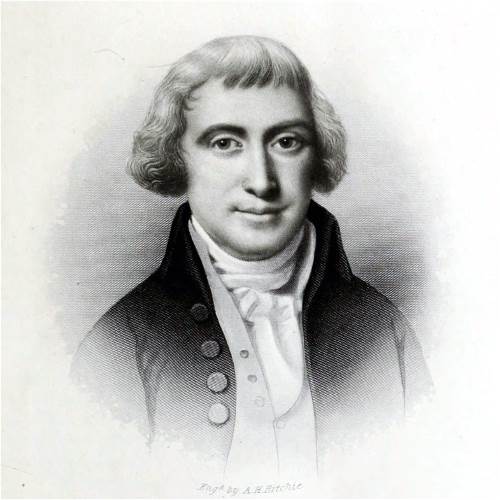
Chief Burgess James O'Hara
(1803-1804)
Then, on March 18, 1816, the city of Pittsburgh
was incorporated. The city then held it's first election to determine who would head
the new municipal government. Ebenezer Denny, a local merchant whose warehouses supplied
the government's efforts in the War of 1812 and on the Western frontier, was elected
Pittsburgh's first Mayor on July 19, 1816.
Pittsburgh City Council
Many of the Mayors of the City of Pittsburgh
began their political careers as members of Pittsburgh's City Council. The Council
President is first in the line of succession to succeed the Mayor in case of death,
resignation or removal from office before a term is finished. Some councilmembers,
like Sophie Masloff and, most recently, Luke Ravenstahl, initially rose to the office
in this fashion. Others began their terms after being elected to the position by the
electorate.
<Learn more about Pittsburgh City Council and see
a list of past and present members>
Special thanks to Michael
Murphy of the Prothonotaries Office for sharing
his research on the Mayors of Pittsburgh - First Published: April 7, 2004
Last updated: January 2, 2026 |